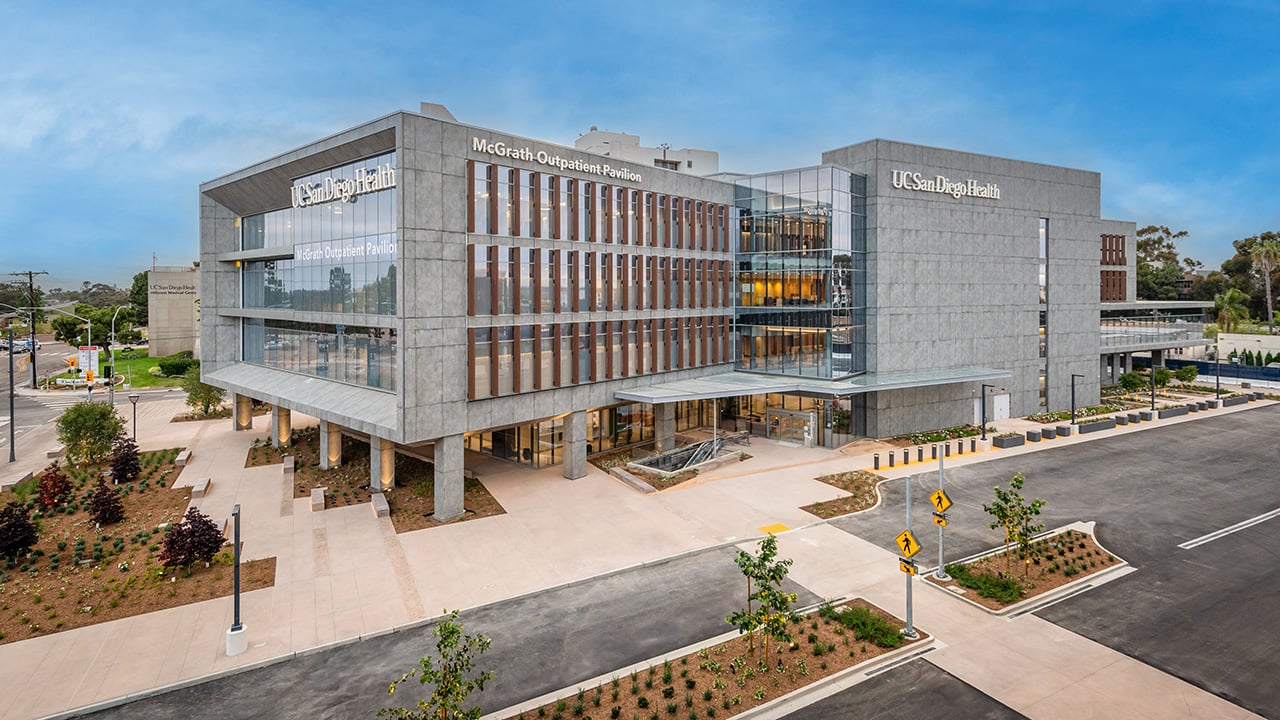July 28, 2025 | Kim Coutts
UC San Diego Health No. 1 in San Diego, Specialty Care Nationally RankedU.S. News & World Report recognizes UC San Diego Health among top in nation for specialty care and treatment of 20 common procedures and conditions.

July 28, 2025 | Kim Coutts
UC San Diego Health No. 1 in San Diego, Specialty Care Nationally RankedU.S. News & World Report recognizes UC San Diego Health among top in nation for specialty care and treatment of 20 common procedures and conditions.

July 28, 2025 | Leslie Aquinde
McGrath Outpatient Pavilion Opens at UC San Diego HealthMcGrath Outpatient Pavilion opens at #UCSanDiegoHealth, expanding access to advanced specialty care, surgery & cancer treatment in Hillcrest.

July 16, 2025 | Kim Coutts
Outpatient Procedure Provides New Option for Prostate CancerUC San Diego Health is leading the region in offering a novel treatment for prostate cancer called transurethral ultrasound ablation or TULSA.